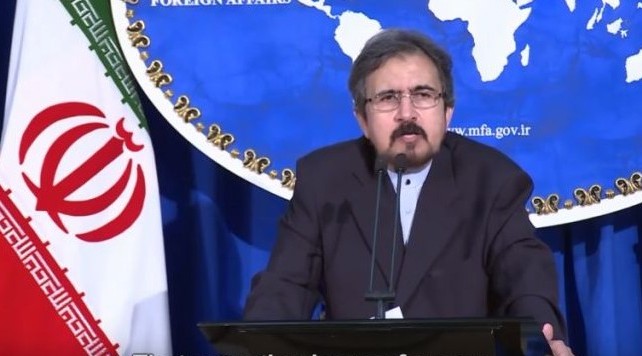AFP with additional desk input |
Iran said on Friday that “biased” French policy was stoking crises in the Middle East after Foreign Minister Jean-Yves Le Drian accused it of “hegemonic” ambitions in the region.
“Unfortunately it seems that France has a biased and partisan approach to the crises in the region and this approach, whether intentionally or not, is even contributing to turning potential crises into real ones,” foreign ministry spokesman Bahram Ghassemi said.
Read more: Lebanon: A new theater opens for Iran and Saudi Arabia?
Le Drian made his comments in Iran’s arch-rival Saudi Arabia on Thursday during a visit aimed at resolving a crisis sparked by the shock resignation earlier this month of Lebanese Prime Minister Saad Hariri, a staunch critic of Iran.
Tehran has vowed not to buckle under pressure. High officials including President Rouhani have asserted that the country will bolster its defense systems.
Tensions between Iran and France is on the rise. Last week, Macron had said he was “very concerned” by Iran’s ballistic missile program and mentioned the missile fired from Yemen and intercepted by Saudi Arabia in early November. Macron even mentioned possible sanctions due to those activities.
“There are negotiations we need to start on Iran’s ballistic missiles,” Macron said.
Iranian Foreign Ministry spokesman Bahram Qassemi strongly rejected that possibility. “France is fully aware of our country’s firm position that Iran’s defense affairs are not negotiable,” he said.
Read more: Consequences of abrogating Iran nuclear deal
Tensions in the Middle East have exacerbated. Miffed by Iran’s seemingly brazen successes in Iraq and Syria, U.S President Trump, much to the dismay of world leaders and non-proliferation experts, decertified the Joint Comprehensive Plan of Action (JCPOA) last month.
Last week, Macron had said he was “very concerned” by Iran’s ballistic missile program and mentioned the missile fired from Yemen and intercepted by Saudi Arabia in early November.
Tehran has vowed not to buckle under pressure. High officials including President Rouhani have asserted that the country will bolster its defense systems. Contributing to that, Iran and Saudi Arabia have ramped-up their proxy war in Yemen with Lebanon opening as a new theater. Watchers are worried that pulling the plug on Tehran might not be easy, especially given the fact that the US appears to be lacking the levers and Saudi Arabia undergoing an internal upheaval.
This is a developing story which will be updated.
© Agence France-Presse














